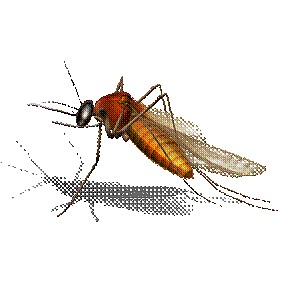Tips to avoid mosquito bites – and the diseases they carry
July 3, 2012 at 12:41 p.m.
West Nile virus (WNV) has been found recently in mosquito samples in Yakima and Franklin counties. The virus in humans is a large problem elsewhere in the nation this summer, including not only illness but death in some cases, reported by the Centers for Disease Control and Prevention.
Recent research indicates higher rates of West Nile infection in climates with high temperatures, which explains the presence in eastern Washington. No virus has been found this year in western Washington.
Mosquitoes will be less of a threat or nuisance if you take steps to protect yourself and your animals.
Protect yourself.
• Get rid of old tires and other containers that catch water; dump water in wading pools, pet dishes, and bird baths at least once every three days.
• Make sure the screens on all doors and windows are tight; repair rips.
• Schedule outdoor activities after dawn and before dusk as dusk and dawn are when mosquitoes are most active.
• Use mosquito repellents containing DEET, picaridin, or oil of lemon eucalyptus; follow the directions on the container.
• Wear long pants and sleeves outdoors when mosquitoes are active.
Human illness. Most people bitten by a mosquito carrying the virus won’t become ill, yet some may have mild symptoms including headache and fever that go away without treatment. For about one in every 150 people who are infected, the illness can be severe, even deadly. Some people may develop meningitis or encephalitis; some neurological effects may be permanent. People over 50 and those with weak immune systems are at higher risk for serious illness.
Horse illness. West Nile is a very serious infection in horses. Talk to your veterinarian about West Nile vaccine for your horses.
More information & to report dead birds. Find more West Nile virus information at www.doh.wa.gov, and by calling 1.866.788.4787. Click here for surveillance maps and statistics; and here to report a dead bird.
Snohomish Health District collected hundreds of birds and mosquito samples between 2002 and 2007. Only one virus-positive bird was found in 2002, and two in 2006. The local surveillance program was discontinued in 2008.
Submitted by the Snohomish Health District, which was established in 1959 to work for a safer and healthier community through disease prevention, health promotion, and protection from environmental threats. Find more information about the Health District at www.snohd.org.





